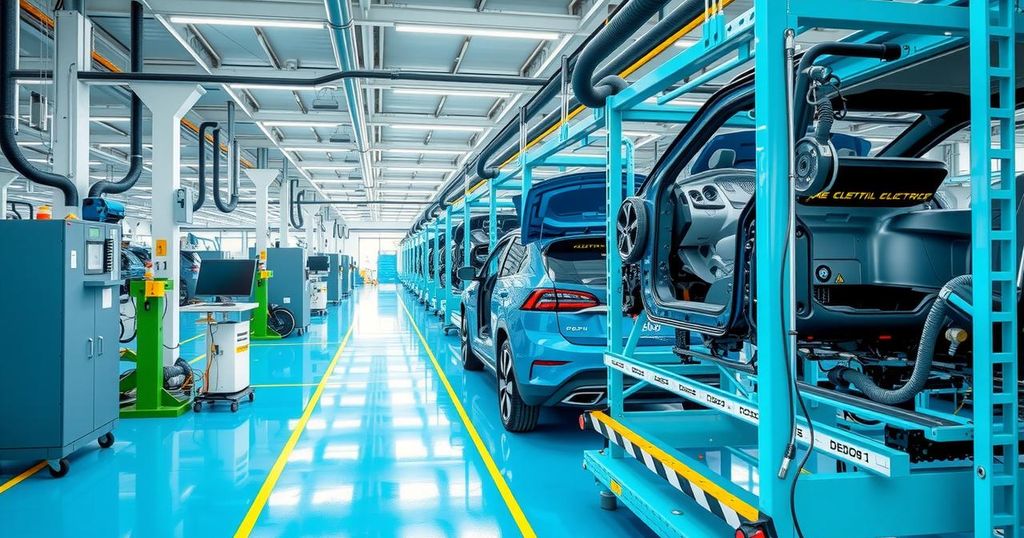BYD Begins Assembling EVs at New Factory in Brazil

- BYD begins electric vehicle assembly at new factory in Bahia, Brazil.
- The plant aims for 50,000 vehicles to be assembled by 2025.
- Final regulatory approvals for the factory are still pending.
- BYD’s initiative reflects a decade-long investment strategy in Brazil.
- Higher tariffs have prompted BYD to increase vehicle imports before July 1.
BYD’s ambitious Brazilian expansion plans take shape.
BYD, the renowned Chinese automaker, is gearing up to start assembling electric vehicles (EVs) at its freshly established factory located in Bahia, Brazil this month. Alexandre Baldy, senior vice president for Brazil at BYD, stated that the plant’s goal is to assemble an impressive 50,000 vehicles by the year 2025. This assembly line will utilize imported kits, thereby lessening the need for imports due to the increasingly steep tariffs imposed on finished vehicles, a necessary move as Brazil shifts its policies.
Challenges loom as BYD tackles labor issues and regulatory hurdles.
However, it is worth noting that the final regulatory approvals for the factory are still under review, leaving some uncertainty hanging over the operation. Earlier in the year, in a preemptive move against the new import taxes slated to increase on July 1, BYD had ramped up its imports, bringing roughly 22,000 completed units from China to Brazil. Meanwhile, this Bahia facility, which was previously a Ford plant acquired in 2023, has already faced criticism and delays, and local labor authorities have suggested that it might not be fully operational until the end of 2026. However, Baldy is optimistic, indicating that they expect to reach full production by July 2026.
BYD’s strategic diversification underscores its Brazilian commitment.
The strategy adopted by BYD in Brazil mirrors a wider, decade-long approach that is simply not limited to EV assembly. The automaker first made waves in 2014 with a $400 million investment to build Brazil’s first battery factory, a significant moment that attracted attention from global leaders. Furthermore, BYD is branching out its efforts, like developing public transit projects such as the 20-kilometer SkyRail monorail designed to accommodate upwards of 150,000 daily riders in Salvador. By 2024, thanks to this well-rounded focus, BYD had seized over 80% of Brazil’s market for battery-electric vehicles, with impressive sales soaring 300% year-over-year. They sold a staggering 76,713 vehicles in the last year alone.
BYD’s initiative to set up EV assembly in Brazil at its new Bahia plant signifies a vital step for both the company and the Brazilian automotive landscape. With ambitious production targets and a significant investment forecast, the automaker is looking to mitigate risks from import tariffs and establish a robust local manufacturing base. However, ongoing regulatory and labor issues pose challenges, highlighting the complexities of operating in evolving markets. The next few years will indeed be crucial for BYD as it navigates these intricacies in pursuit of a sustainable and successful presence in Brazil.




